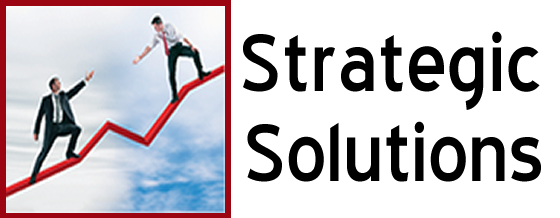Habits: Reprogramming Your Triggers
“A bad habit never disappears miraculously. It’s an undo-it-yourself project.”
– Abigail Van Buren
Last week we spoke about habits and how they’ve become so routinized in our lives that we’re often unaware that at one point in time, we made a conscious decision that we would do ‘this’ (action), when presented with ‘that’ (trigger).
Some triggers are good; some are neutral; but others are just plain bad and need to be broken.
Many feel they’re so used to thinking and doing things a certain way, that changing is not in the cards. Some have read about techniques others have used successfully to change their habits, but they seemed so foreign to their own lives, they knew it wouldn’t work for them. They would ultimately fail.
There’s no secret sauce to why some people seem to be able to change their habits easily while others struggle. I do know that trying to emulate the way someone else does something and expecting it to work for you, is more often than not a lesson in futility. The methodology may be sound, but unless you adapt it to your own natural self, it becomes impossible to achieve. You need to find what works for you.
Some people can embrace an all or nothing mentality while other people take small steps.
Some people succeed when they have an accountability partner, while others prefer to go it alone.
Choose the path that suits your own style – your own mindset and frame of reference – and you’ll increase your ability to succeed. Go against your ‘grain,’ and the process itself becomes overwhelming. My only caution would be to advise you to keep it simple. Don’t concoct a complicated system of steps. Keep it easy and doable. Otherwise it will become nothing more than another reason to procrastinate and lose motivation. We all know what happens then.
When I first started my business, I was new to the area and new to the Chamber. My only goal was to meet as many Chamber members as possible. I sat down with a list and a telephone, determined that I would work the list and wouldn’t stop until I set 5 appointments each day. Although I’d break for lunch and a short walk, I wouldn’t read my favorite newspaper or reward myself in any way until I met my goal.
Habits are processes repeated over and over again until they become part of who we are – or, at least who we think we are, but as we mentioned previously they’re no more than a stimulus response mechanism.
So let’s take a look at what signals our triggers to kick in and why.
Trigger —->Behavior—->Reward
Our triggers are events and stimuli that signal a response.
Our behavior is the action we take in response to the trigger.
Our reward is how we benefit by our actions.
The way to build good habits is to link a new action to a trigger. It could be auditory (bell, alarm, a certain piece of music – whatever you like). It could be visual too, or involve other senses.
In fact, it could be any one of the 5 triggers we mentioned in last week’s blog.
Let’s take a business example and play it out:
Trigger: a networking event or mixer.
Our typical response may be to collect as many business cards as possible.
Our reward typically was a stack of business cards on our desk that remain there as a reminder of all the people we haven’t called and consequently represents lost opportunities. What a downer.
But, when we link a new response (action) to our trigger, the results are entirely different.
Our new response: Collect the cards of 5 new people you’d be interested in speaking with, and call them within 1-2 days of the event.
Our new reward: No more lonely stack of business cards sitting on your desk. Five new acquaintances and the possibility of new referral partners and business. The business cards are now part of your contact list.
As you can see, the reward is much greater when you adapt a new action to an old familiar trigger. The best piece of advice I can give you is to keep your focus set firmly on the end result and your new habit will become easier to accomplish.
It’s hard to change old patterns of behavior, but when you begin to look at the process as a series of habits you’ve lived every day of your life, changing your habits becomes key to changing your life. Personal experience has taught me that in the end, it’s infinitely worth it.
